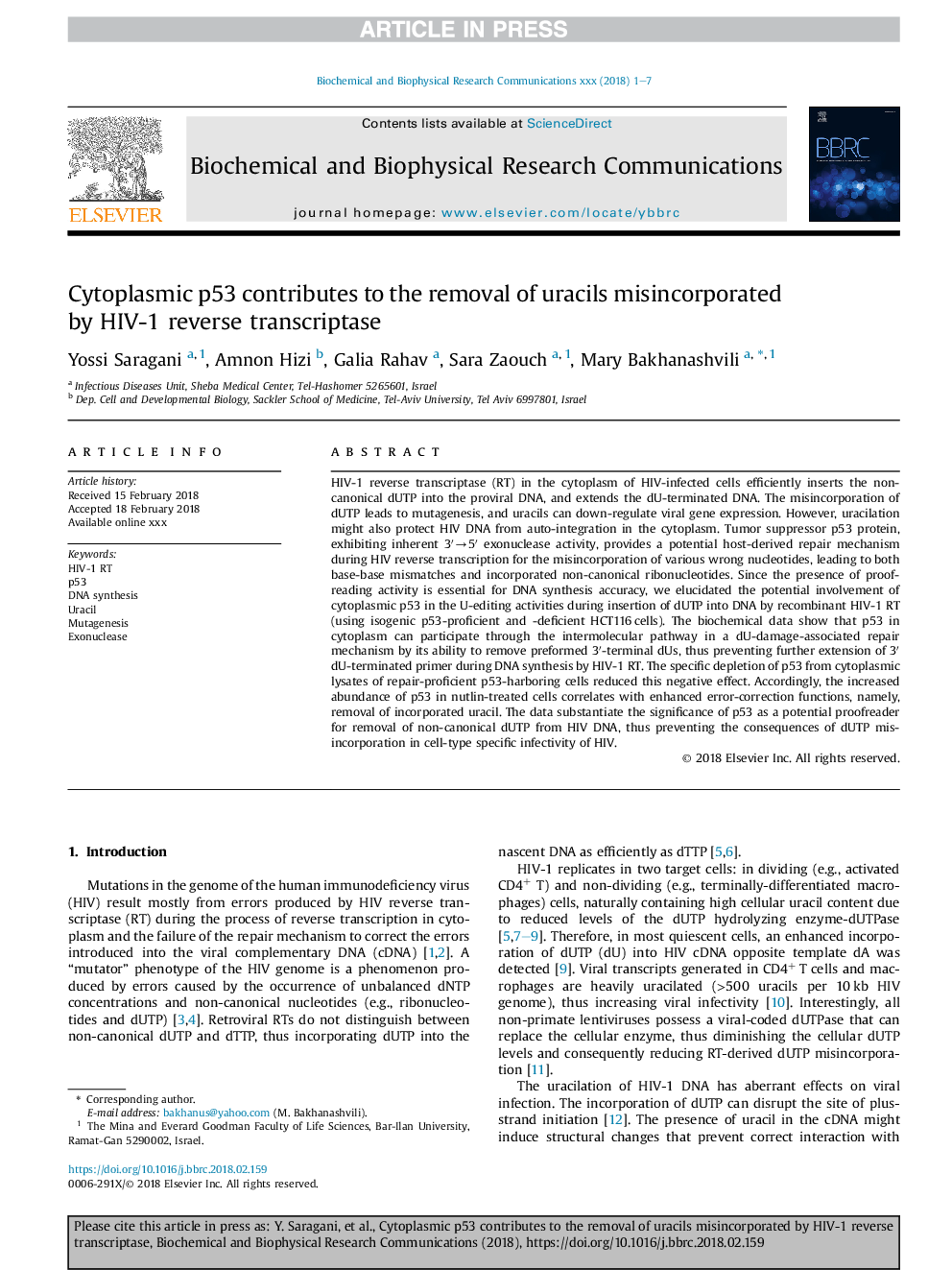| Article ID | Journal | Published Year | Pages | File Type |
|---|---|---|---|---|
| 8294131 | Biochemical and Biophysical Research Communications | 2018 | 7 Pages |
Abstract
HIV-1 reverse transcriptase (RT) in the cytoplasm of HIV-infected cells efficiently inserts the non-canonical dUTP into the proviral DNA, and extends the dU-terminated DNA. The misincorporation of dUTP leads to mutagenesis, and uracils can down-regulate viral gene expression. However, uracilation might also protect HIV DNA from auto-integration in the cytoplasm. Tumor suppressor p53 protein, exhibiting inherent 3â²â5â² exonuclease activity, provides a potential host-derived repair mechanism during HIV reverse transcription for the misincorporation of various wrong nucleotides, leading to both base-base mismatches and incorporated non-canonical ribonucleotides. Since the presence of proofreading activity is essential for DNA synthesis accuracy, we elucidated the potential involvement of cytoplasmic p53 in the U-editing activities during insertion of dUTP into DNA by recombinant HIV-1 RT (using isogenic p53-proficient and -deficient HCT116â¯cells). The biochemical data show that p53 in cytoplasm can participate through the intermolecular pathway in a dU-damage-associated repair mechanism by its ability to remove preformed 3â²-terminal dUs, thus preventing further extension of 3â² dU-terminated primer during DNA synthesis by HIV-1 RT. The specific depletion of p53 from cytoplasmic lysates of repair-proficient p53-harboring cells reduced this negative effect. Accordingly, the increased abundance of p53 in nutlin-treated cells correlates with enhanced error-correction functions, namely, removal of incorporated uracil. The data substantiate the significance of p53 as a potential proofreader for removal of non-canonical dUTP from HIV DNA, thus preventing the consequences of dUTP misincorporation in cell-type specific infectivity of HIV.
Related Topics
Life Sciences
Biochemistry, Genetics and Molecular Biology
Biochemistry
Authors
Yossi Saragani, Amnon Hizi, Galia Rahav, Sara Zaouch, Mary Bakhanashvili,
